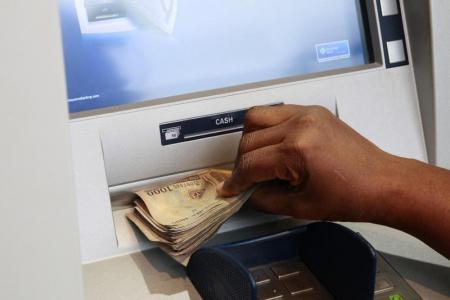
LAGOS (Reuters) – Nigeria’s naira was quoted at an all-time low of 409 to the dollar on the black market on Thursday, compared with 402 the previous day, after the suspension of some banks from forex trading made dollars even harder to obtain.
The central bank suspended nine commercial banks from forex transactions on Tuesday for failing to pay money owed to the government – although one was readmitted after making a payment. Shares in some of the banks hit dropped by up to 7.8 percent.
Traders said the local currency fell due to the impact of the suspensions, compounding the dollar shortages Nigeria has been suffering due to the slump in the price of its oil exports.
“The suspension of some banks from transaction in the forex market has really increased pressure on the market,” said Aminu Gwadabe, president of the bureaux de change association.
Bank executives have been meeting central bank officials to resolve the forex issue as investors continued to dump their shares second day.
Skye Bank fell the most of those suspended from foreign exchange transactions, shedding 7.81 percent, followed by Fidelity Bank down 3.0 percent. FBN Holdings shed 1.9 percent while Diamond Bank and FCMB were down 0.8 percent.
The falls pulled the main index down 1.8 percent.
On the interbank market, the currency gained 0.2 percent to close at 305 naira to the greenback with traders attributing the rise to central bank dollar sale to prop up the unit. The bank has been selling dollars almost daily to boost liquidity.
However, currency forwards put the naira at 344.50 to the dollar in one months’ time.
On Thursday, the central bank settled $152.48 million of naira futures contracts it sold in June at an exchange rate of 279 naira per dollar, further draining its reserves, which is at its lowest in more than 11-years.
In June, the central bank abandoned its currency peg to the dollar, allowing the naira to weaken by 40 percent in a bid to attract more foreign investment.
But so far trading in the official foreign exchange market has been limited as those with dollars prefer to sell them for a higher rate on the black market.
(Reporting by Oludare Mayowa; Additional reporting by Chijioke Ohuocha; Editing by Alison Williams)